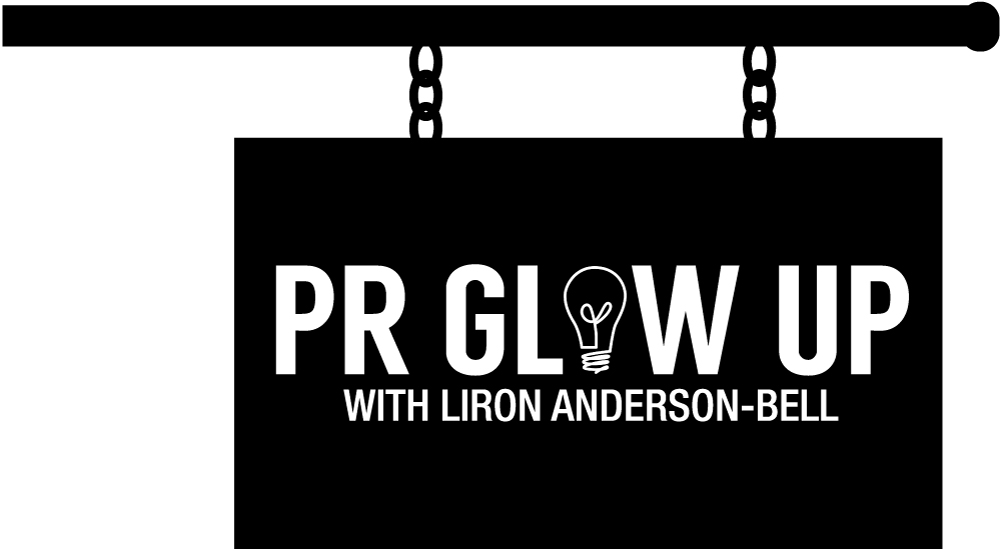Is the APR Designation a Benchmark or a Trophy?
/APR is a professional designation that stands for Accredited in Public Relations.
The APR was developed a little over 50 years ago and is granted by the Universal Accreditation Board, a group of prominent public relations and public affairs professionals from organizations across the United States and Puerto Rico.
What does the APR designation mean?
Andrew McCaskill, APR, describes how the APR was his professional goal to achieve.
According to the Public Relations Society of America (PRSA), which handles the day to day processes of the APR journey, "obtaining the APR designation proves you have successfully demonstrated competency in the knowledge, skills and abilities required to practice public relations effectively in today’s business arena."
Who can argue with that? I agree with that statement, and I think if people can spare the time and the expense to pursue APR designation, there's absolutely no downside. It is an amazing accomplishment, and I deeply respect anyone who has received it.
Let's discuss the elephant in the industry room
I have never had an employer or client who required APR designation as a condition of hire or continued employment.
I have been asked several times over the years whether I earned the APR and whether I think it's worth the effort. My answer? I haven't pursued APR accreditation and at this time I don't plan to because not having it has never hindered my career progression.
That may sound naive, but then there's this: I have never even had a manager that had earned the APR. Not once, in my 25+ years of experience — and when not working for myself, I have worked everywhere from major PR agencies and small boutiques to huge multinational corporations and in-house at brands.
At one of my earliest PR agency jobs in the mid-90's, I worked at a large "top 5" agency in New York. This was twenty years ago, but it's worth noting that there were only a handful of APRs among our hundreds of employees. I recall senior leaders occasionally, even wistfully, mentioning the APR as something they considered once upon a time. On the rare times it was referenced, it was presented as optional — as something us newbies might consider obtaining in the future. I recall one executive saying that while it was a source of prestige in the industry, it was more closely tied to personal pride for being able to get through the process (it's recommended that you don't even try to pass the accreditation until you've been practicing at least five years).
Interestingly, there were two major MBA programs in the city that had just launched concentrations in media management, and younger staff were actually pushed quite aggressively toward pursuing those degrees. The prospect of tuition reimbursement was even dangled in front of us.
Let that sink in. This was a globally ranked, top agency in a major PR market, and our EVPs and SVPs were openly encouraging junior staff to go for their MBA — not the APR. There was very little conversation about the APR or how much preparation would be required to pass it. There was also no program in place to reimburse employees for the cost of the exam.
I probably didn't think about going for it for another 15 years. This was in part because it literally never came up again, but also because the not-so-subtle message I received during my formative professional years was that I didn't have to make the APR a priority to advance in this industry.
PR is an industry with multiple paths to success
If you ask 10 professional communicators what their college majors were or what graduate degrees they have, you just might get 10 different answers.
There have been many attempts to establish universally required, advanced education or accreditation for the PR industry, but there is still no agreed-upon standard — at least not as compared to other disciplines. For instance, if you earn a Doctor of Medicine (MD), you have taken the first step toward becoming a physician. Likewise, there is the Juris Doctor for aspiring attorneys, the CPA for accountants, and so on.
Yes, you can major in communications or public relations at many universities. There are even some masters programs in PR sprinkled around now, too. However, there are no mandatory academic qualifications for getting in, or stay in, the industry.
That's both good and bad; on the bad side, such ease of entry has helped create the vapid, cocktail-swilling, interference-running fla(c)k stereotype and the notion that we have "made-up" jobs — a caricature that has seeped into television (via characters like Edina Monsoon and Samantha Jones, among others).
I PR things!
PR may be one of the only professional services that has such a low barrier to entry.
Think about attorneys studying for the bar exam. At many law firms, new hires fresh out of law school are given time and support to study for the bar exam (sometimes the summer before they start work) and the fees associated with it are covered by the firm. It's in the firm's best interest to help them pass the bar, and pass it the first time. Not only is it a condition of employment, but they have already invested a ton of time and money to recruit and pay this employee. The expectation is that he or she will turn into a productive member of the firm, churning out billable hours and contributing to revenue.
Maybe we should have this model in our industry, but today, we don't.
You sometimes hear the APR compared to the CPA, but to me, that is wildly inaccurate. For accountants, the CPA is a widely-accepted benchmark. It can open up career opportunities because there are employers and accounting roles that require one to have it. CPAs can also expect higher salaries than accountants who have not passed the exam. That's just not the case with PR. You can work forever and have a great career without the APR designation.
Here's an argument in favor of the APR
I once heard my mother-in-law say "if you can read, you can cook." On its face, that comment rings true. If you can read, you should be able to follow a recipe and produce the item described. That said, you cannot read one or two issues of Food & Wine and open a successful restaurant.
We all have friends who habitually burn every kernel of microwave popcorn or struggle to follow a YouTube recipe tutorial. It's not that they're unintelligent or illiterate. It happens because simply watching someone do something — or even reading explicit instructions about how to do it — is not always enough for you to learn how to do it well yourself.
A lot of PR folks miss that nuance as they navigate their careers, and hang out a shingle after a year or two in PR.
I find this mind-boggling.
To me, it's as ridiculous as a mid-degree medical student waltzing into an operating room to lead surgical repair of a ruptured tendon.
If you quit medical school, you can't just go and "be" a doctor. You haven't learned enough. You haven't truly practiced medicine. You haven't made mistakes under controlled conditions or learned from them.
Similarly, anyone who has been to law school can regale you with stories of grizzled professors shouting "I am not here to teach you how to be a lawyer - you learn that after law school!"
Yet, in PR, it actually happens all the time. Frankly, as an industry, we all share responsibility for creating the problem.
Not only is there no mandatory certification — we've also done a great job of making the network of functions we perform look easy! This is why aspiring solo practitioners sometimes convince themselves after a couple of agency internships — or a brief stint in an entry level communications role — that they can (nay, should) declare themselves PR experts.
Nothing is stopping them from purporting to be full service practitioners after a brief season of updating media lists, scanning HARO posts, compiling impressions reports and watching Scandal.
Maybe it wouldn't happen if the APR designation was required to be considered "legit" — as I mentioned earlier, PRSA recommends that you practice a minimum of five years before attempting to become accredited.
To be 100% crystal clear, I am not dismissing self-taught PR people wholesale.
I got my start working for amazing, well-known, self-taught practitioners (including PR industry giant Terrie Williams). I literally would not be working in this industry — or perhaps anywhere else — if not for them. However, that level of raw, natural skill is a rare gift from the heavens, like having perfect pitch, or being clairvoyant. Or inserting a USB dongle the right side up the first time.
Of course, I am not claiming that communications functions are as manually complex as performing orthopedic surgery or running a kitchen in a 5-star hotel. However, I am saying that there is a tremendous amount of study, training, rigor, mentoring, application, failing, and flawless repetition required before you are good enough to be released out onto the world as a communications professional - solo or otherwise.
How many PR pros does it take to change a lightbulb?
The last time I thought about going for the APR, I was working at a global biopharmaceutical company with a massive Public Affairs team — over 100 communicators internationally. I was on a committee that was charged with deciding how to ensure that all of us had a comparable minimum skill level, and that there was a company-wide standard for work quality. We considered whether having all of the communicators get their APR could be the best way to do that.
After thoroughly researching that prospect for the better part of a year we concluded that earning the APR was a laudable accomplishment, but we couldn't in good faith make it a requirement. Our colleagues were already doing excellent work. Some of them had been in strategic communications for over 25 years, at top companies around the world. Were we really going to tell these folks that they were not "legit" until they earned APR designation? Please. The resignation letters would have been legendary, even in PR.
Ultimately, my colleagues and I — a group of communications pros with decades of collective experience between us and respect for the APR process — came to consensus that in our workplace, those three letters just were not needed.
Inspiration and Resources
Again, I do think the APR is a worthwhile goal if you are so inclined.
For those that are, I suggest taking a look at the APR Study Guide to understand the level of preparedness expected of you.
Got more questions? Get some answers right here.








